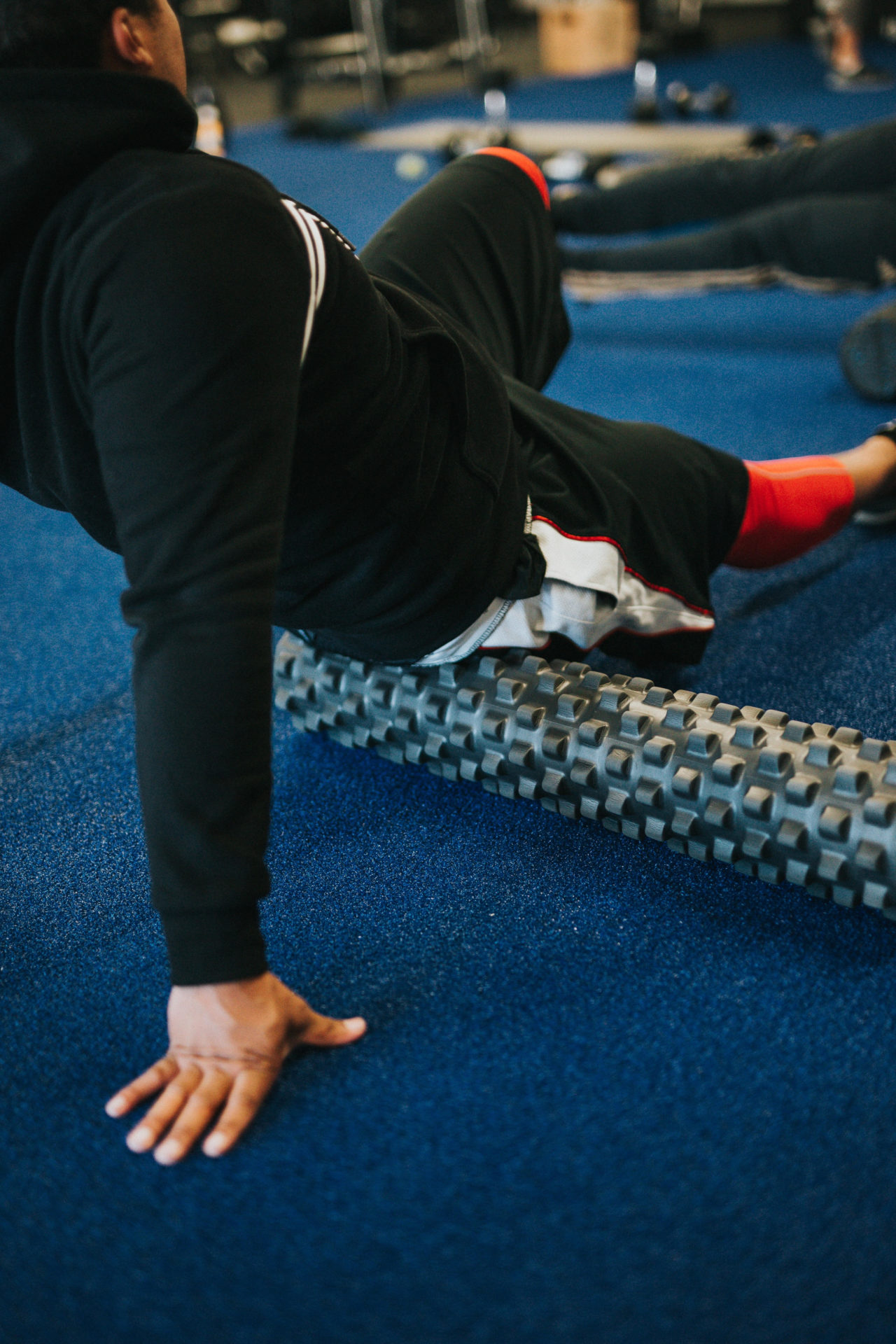What do foam rollers do?
You may have heard that foam rollers are good for you.
Or maybe you’ve tried one yourself, but why is it really important?
Using foam rollers increases muscle flexibility and range of motion.
Studies show that foam rolling in combination with static stretching is more effective at increasing the range of motion than just stretching alone.
Having sufficient mobility is essential to maintaining proper posture, being able to carry out all the tasks you need to do, and preventing pain and injury.
Using foam rollers also improves recovery and performance.
Many people report feeling less fatigued and sore after working out if they include foam rolling as part of their warm-up.
Studies have demonstrated that when muscles are warmed-up with foam rolling, they are actually more efficient and able to produce the same amount of force with less effort.
Studies also show that foam rolling after a workout can reduce the delayed-onset muscle soreness that we get after strenuous exercise.
Better recovery and less soreness then allow for better performance in subsequent workouts.
How does this happen?
Similar to a chiropractic correction, foam rollers cause both structural and neurological changes.
Foam rolling is a form of self-myofascial release.
Fascia is a thin layer of connective tissue that encases muscles as well as the blood vessels and nerves that pass through them.
This highly important tissue reduces friction and allows these structures to easily slide past each other as we move our bodies.
Fascia is designed to stretch as you move and provide lubrication to these moving structures.
It is also a very sensitive tissue with lots of nerve endings.
However, when the body is under stress, damage can occur to the fascia.
The following are examples of things that can cause the fascia to become dry and tight. This limits mobility and often causes discomfort:
- Sedentary habits
- Poor postures
- Repetitive movements
- Trauma or injury
- Poor diet
- Dehydration
Adhesions or knots may develop where the tissue sticks together.
These are often tender or painful to touch.
Foam rolling applies pressure and movement to the fascia.
The friction created by foam rolling warms the fascia, making it more pliable and less susceptible to injury.
It also increases blood flow to the area, speeding up the healing process.
In this way, foam rolling promotes tissue repair and restores flexibility and hydration to the damaged fascia.
Foam rolling also has neurological effects by stimulating the nerve receptors embedded in the fascia.
Some of these nerve receptors send pain signals to the brain. This is why foam rolling may cause some discomfort, especially when working an especially tight area.
More importantly, foam rolling stimulates proprioceptive nerve receptors that detect changes in muscle tension.
These nerves then signal the brain to relax and loosen the tissue.
Like any kind of exercise and chiropractic corrections, the key to lasting benefits from foam rolling is consistency.
Try to foam roll at least once a day as part of your mobility program. And include it in your pre-workout warmup and post-workout recovery for best results.
Dr. Derek Gallant
Dr. Derek Gallant has committed himself to helping others live the best life possible. After graduating from Wesleyan University, he received his Doctor of Chiropractic Degree from Life Chiropractic College West where he finished 2nd in his class. He is the owner of Beverly Family Chiropractic and co-founder of The Well Family Foundation. Dr. Gallant is certified through the International Chiropractic Pediatric Association (ICPA) in the Webster technique, an analysis focused on assisting pregnant women in a healthy pregnancy and natural birth. He has inspired thousands of people to take control of their own health using the Life By Design method. Apart from full time practice you can find Derek at the parks and coffee shops around Beverly with his family, training hard at the gym, or at the beach surfing.








